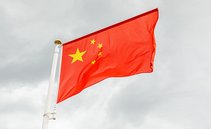The booming US economy will certainly have effects on the November 5th vote.

A swath of exceedingly positive data for the US economy was released on Thursday as the country enters a 4-month fierce electoral fight. The economy is considered the main issue by voters of both parties, and a positive economic cycle during the election year historically favored the incumbent party.
The US Gross Domestic Product increased by 2.8% in the second quarter of 2024, far more than the 2% expected by Bloomberg-polled economists. That is up from 1.4% growth in the first quarter, and 2.1% in the same period last year.
As always, consumer spending was the strongest driver of GDP growth. Personal consumption, which makes up almost 60% of American GDP, increased 2.3% in the April-June period. That coincided with a decrease in personal savings: 3.5% compared to 3.8% in the previous quarter.
Analysts believe the second quarter will be the best-performing of the year, with American consumers holding their spending for the rest of the year.
Imports, which are subtracted from GDP, increased 6.9%, mirroring an export frenzy from China. As the current administration imposed severe tariffs on Chinese goods starting in July, imports from China are expected to decrease in the next quarter.
leggi anche
How China plans to solve its crises

More growth, less inflation
A growing economy would generally be seen as detrimental by the US Federal Reserve, as it usually brings inflation upward.
That, however, appears not to be the case. The Personal Consumption Expenditure (PCE) index, the Fed’s preferred gauge of inflation, increased by 2.6% in Q2 down from 3.4% in the previous quarter. That indicates lowering inflation, confirmed by the first decline in prices for the first time since 2020 last June.
Core PCE was measured at 2.9%, down from 3.7% in Q1.
In other words, the economy is growing and inflation is declining, the perfect scenario for any economist.
The Federal Reserve will hold a meeting next week, with markets expecting them to hold interest rates at their 23-year high of 5.25%. At the same time, markets expect with 100% certainty a rate cut in September, with another one following in December.
A rate cut would officially mark a psychological victory against inflation, which has grappled the US economy since 2021. It would also be a boost to the Democratic reelection campaign, as inflation reached its peak and dropped completely under the current administration.
Republican candidate Donald Trump threatened the Fed to hold interest rates until after the election. Trump winning the election would technically give him the power to remove Fed’s Chairman Jerome Powell, though such a move is considered highly unlikely.




